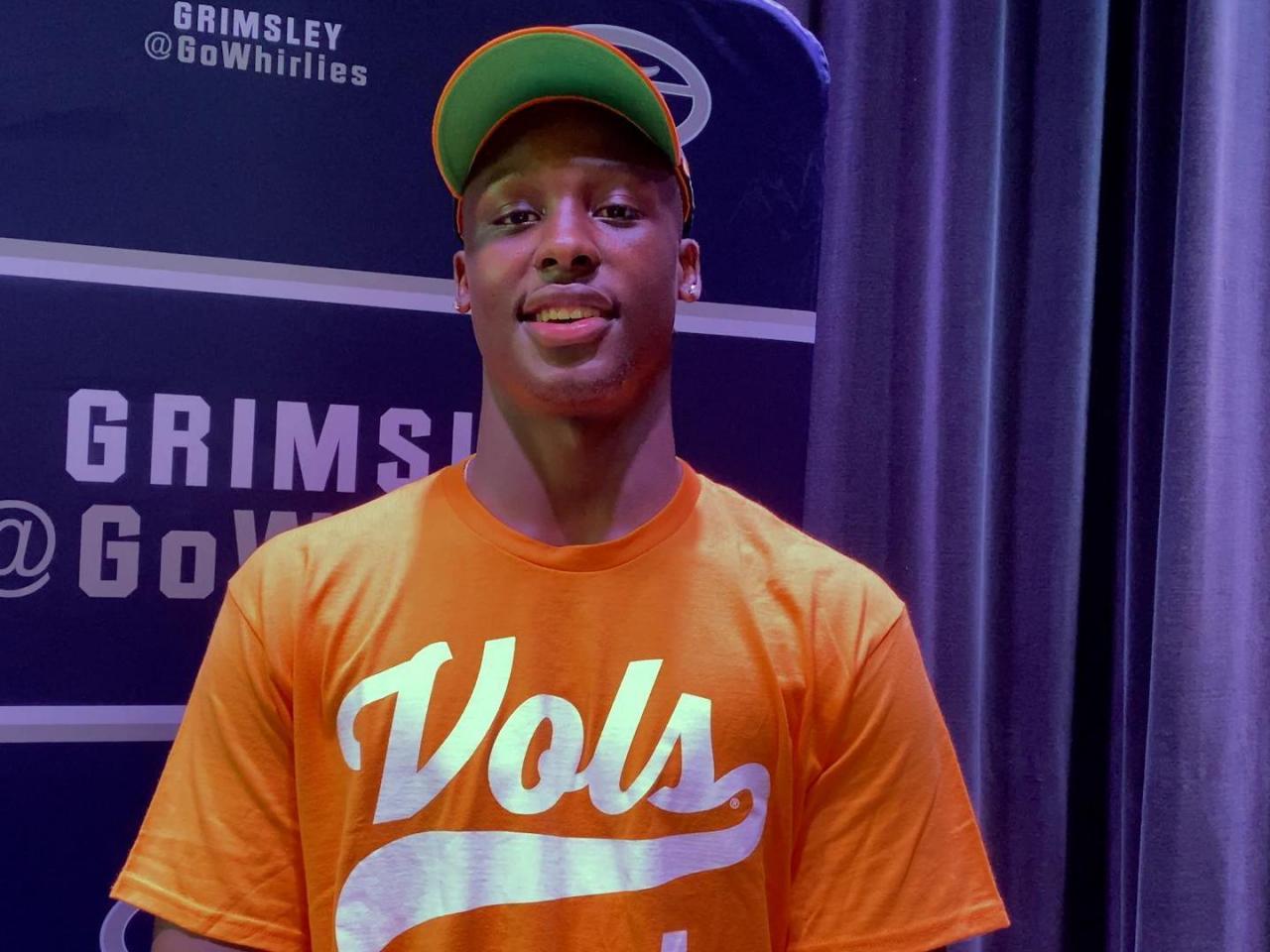Top North Carolina high school quarterback sues over state’s NIL restrictions
One of the state’s top high school quarterbacks is suing the state over its name, image and likeness prohibitions for public school athletes.
The complaint was filed Friday in Wake County Superior Court by Rolanda Brandon on behalf of her son, Greensboro Grimsley High School quarterback Faizon Brandon, ranked as the No. 1 prospect in the nation and a Tennessee commit.
The lawsuit names the North Carolina State Board of Education and the North Carolina Department of Public Instruction as defendants.
The complaint alleges that the State Board of Education exceeded its authority under state law to “regulate” the use of name, image and likeness by public school athletes by instead prohibiting it altogether in June.
“This plainly exceeded the Board’s authority under Senate Bill 452, which explicitly charges the Board to develop regulations under which athletes’ will ‘use’ their NIL for commercial purposes,” the lawsuit states.
Rolanda Brandon declined comment on the lawsuit. The state board did not immediately respond to request for comment from WRAL.
The lawsuit asks the court to throw out the state board’s policy on NIL. It does not seek monetary damages or awards for Brandon.
“The State Board of Education was asked to create rules allowing public high school athletes to use their NIL — it was not empowered to ban it,” said Mike Ingersoll, one of the lawyers for the Brandon family. “We look forward to correcting the State Board’s error and to help our client benefit from the incredible value and opportunities his hard work and commitment have created for his name, image, and likeness.”
Senate Bill 452 is largely about insurance laws, but state lawmakers, who have been feuding with the athletic association for several years, tacked on an entire section to change oversight of public school athletics, giving the state board power to make rules about eligibility, academic standards and transfers as well as name, image and likeness.
The North Carolina High School Athletic Association approved a policy in 2023 that would have allowed athletes to profit off their NIL, but state lawmakers acted quickly to stop that and it never went into effect.
The rule passed in June impacts players on teams that compete in the North Carolina High School Athletic Association, which is made up of public and a handful of parochial schools. Athletes on private-school teams that compete in the North Carolina Independent School Athletic Association are free to use their name, image and likeness to make money.
Sen. Vickie Sawyer, R-Iredell, said lawmakers expected NIL to be implemented for public schools.
“As disappointed as I am with the board about the decision in June — all thoughts were the NIL would be adopted — this is why the process we set in place is good for high school athletics,” Sawyer said. “Now there is a way that athletes can petition or sue and now we know exactly what’s happening in the public eye.”
There are about 100 schools in the NCISAA.
Grimsley High School is a member of the NCHSAA. “The NCHSAA has neither rule nor policy regarding NIL, as that authority lies with the State Board of Education,” said Que Tucker, commissioner of the NCHSAA.
David Sanders, Jr., like Brandon a five-star prospect and a Tennessee commit, plays for Providence Day School in Charlotte and has an entire website dedicated to selling merchandise with his image.
Thirty-eight states, plus the District of Columbia, allow high school athletes to use their name, image and likeness.
“The Board’s NIL Prohibition is not just inconsistent with the overwhelming majority of states nationally, but it is inconsistent with NIL policy in North Carolina, itself,” the lawsuit states.
North Carolina’s prohibition states that no student participating in athletics shall enter into any agreement to use the student’s name, image or likeness in public appearances, commercials, autograph signings, athletic camps or clinics, product or service endorsements or promotional activities, including in-person event or social media ads.
“A prominent national trading card company” agreed to pay Brandon “a substantial amount of money” in exchange for signing memorabilia prior to his high school graduation, according to the lawsuit. It was set to start May 31. The lawsuit states that he has been approached by other businesses wishing to license his name, image and likeness.
The deal would provide Bradon and his family “with financial financial security for years to come.”
A lawyer working on Brandon’s behalf requested a meeting with State Board of Education Chairman Eric Davis several times in June and July. Those requests were denied.
The state board has said the rule is a temporary one for the 2024-25 school year. The board is “beginning the process to adopt a permanent rule for the 2025-26 school year and beyond,” said Allison Schafer, the general counsel for the state board, in a letter included in the complaint.
Brandon plans to graduate in December 2025. The complaint argues that the cumulative financial impact to him is more than $1 million.
Source: wral.com
